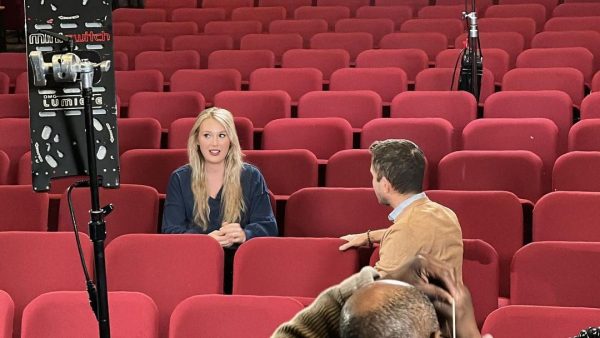What happens in Health class stays in Health class
The advantages and drawbacks of FLE

According to the FCPS curriculum, human sexuality is first introduced to students in grade four. The curriculum for FLE (Family Life Education) varies throughout the years and is covered more in depth as students mature.
Sophomore Michelle Akl thinks FCPS begins sexuality classes too early, saying, “If they teach it so early, people begin getting ideas about [sex] earlier.”
In high school, students learn about sexually transmitted infections and human reproduction. Students also begin to learn about sexual orientation and gender identity, learning definitions of homosexual, bisexual, heterosexual, etc.
A controversial topic that is covered in FLE is safe sex and preventative measures to use. Some believe that teaching students about contraceptives encourages teens to have sexual intercourse.
“I agree that we should teach [safe preventative measures] because at some point in your life you can use this information,” Health teacher Craigin Winkler said. “When I teach it, I’m not pressing to use it now but some people might choose to use it now and some might choose to use it later in life. The key word is prevention because you’re preventing [STIs and pregnancy] by using it.”
Abstinence has been up for debate, and the question legislators have to deal with, is to what extent can teachers push for abstinence only in the classroom. Virginia is one of the many states that allow for abstinence only.
“I think we have a good balance and [in] most of the lessons that we teach we always implement in some way that abstinence is the best policy even when talking about STIs or birth control and parenting adoption/abortion we always implement that abstinence is the best choice,” Winkler said.
However, a lot of issues about abstinence education comes from the fact that many of the materials used in these abstinence and sex based lessons are very old. Additionally, Virginia is one of many states that does not require information in sex ed to be accurate.
“Teenagers have to learn about the STIs and other downsides. FLE may not interest many students but learning accurate information about STIs and pregnancy could change students’ lives,” sophomore Amy Han said.
Some think the videos they use in class tends to be unrealistic and unhelpful, thus, a waste of time.
“The fact that the videos are so aged and uninteresting has made me not pay attention or care about what is going on in the video as much. It’s not relatable to what would happen in real life,” sophomore Andy Nguyen said.
That is not to say that the videos don’t offer information that will encourage them to make informed choices.
“I think the videos are a bit old fashioned,” Winkler said.”But it does take many years to get a video approved by the county to show in class and they’re currently revamping the curriculum this year.”
Even though there are many parts of FLE which can definitely be improved, it is still useful to students and should be taught so all can learn about sexuality, STIs and pregnancy.
“FLE is definitely helpful, and really teaches us a lot.” sophomore Lina Osman said. “Even though some of the stuff is old, it does a good job teaching students about sex and sexual identity.”










